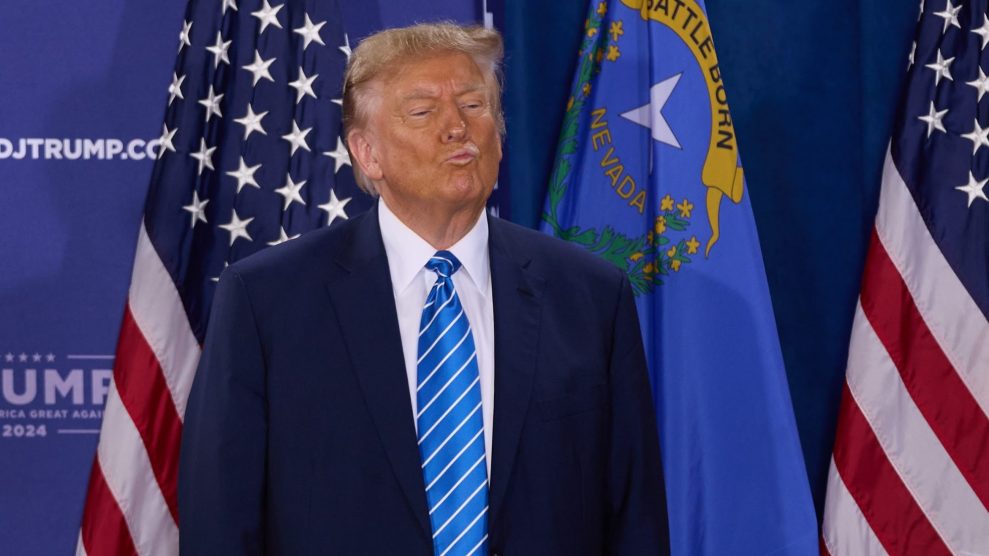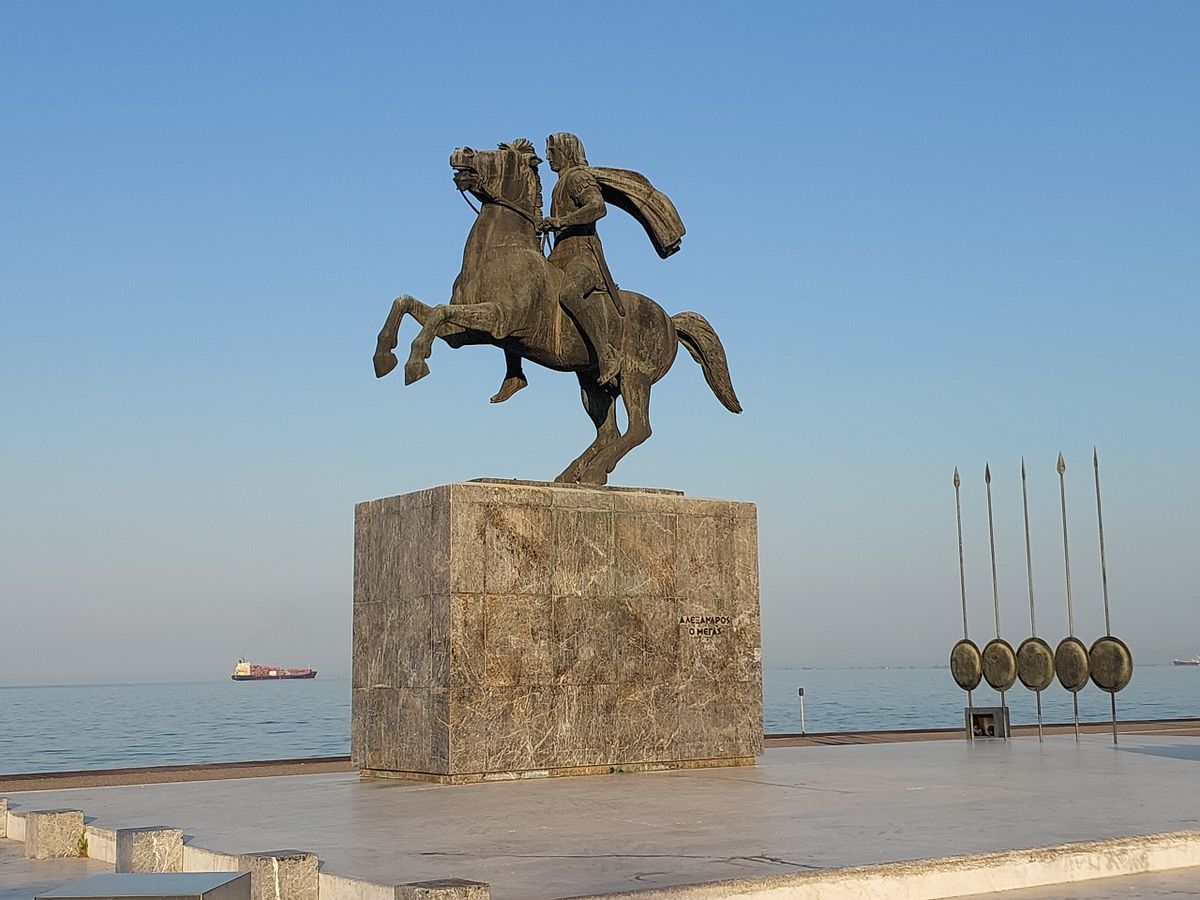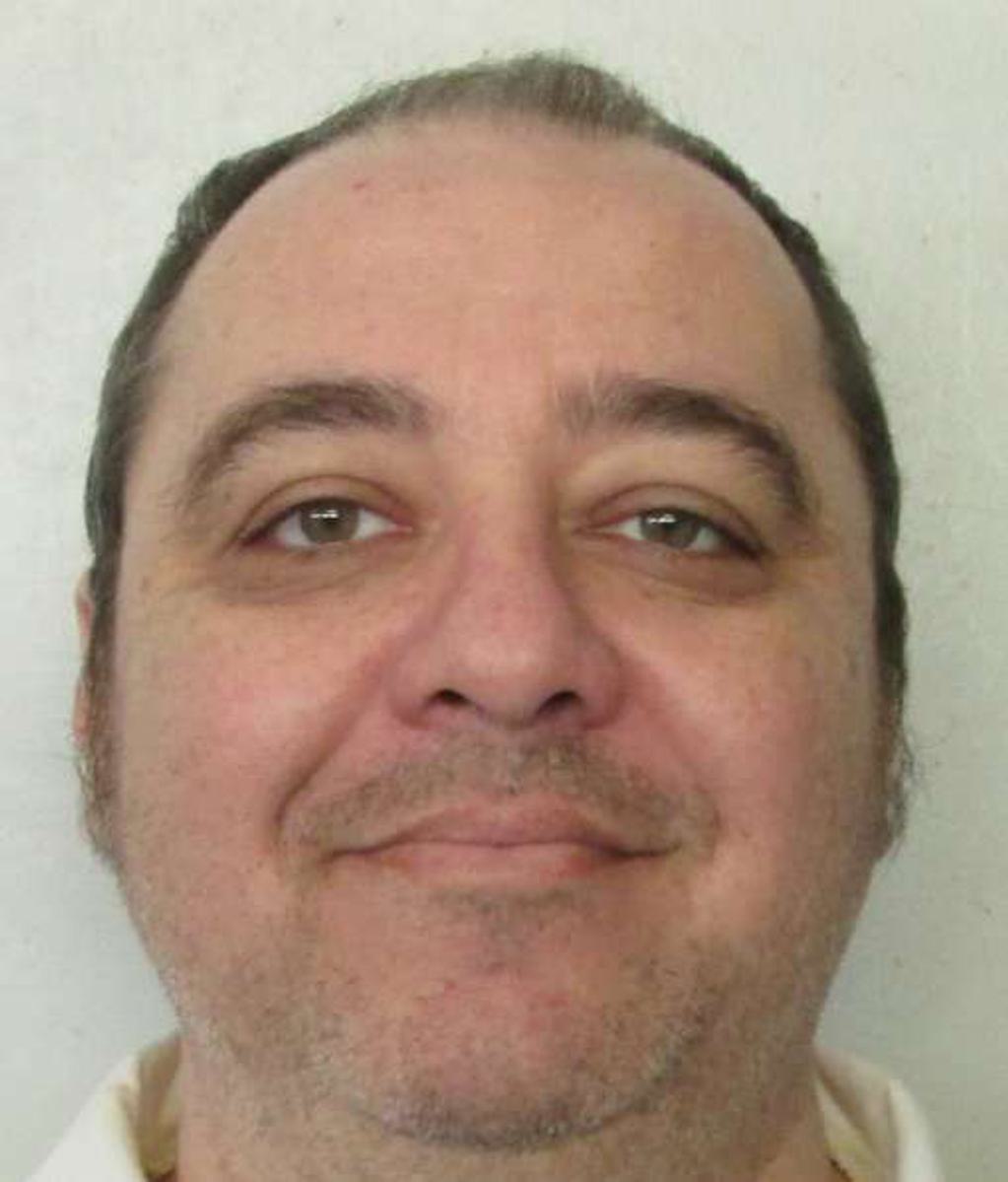Despite Trump appointing three of the Supreme Court justices that were part of the majority that overturned the constitutional right to abortion established in Roe v. Wade, most voters don’t hold him responsible for rising abortion restrictions nationwide, according to the results of a new poll released Monday.
The poll, conducted in December by the progressive think tank and polling firm Data for Progress, found that less than a quarter of voters overall (only 36 percent of Democrats—and, oddly, only 11 percent of Republicans) see Trump as “responsible for new bans or restrictions on abortions in states across the U.S.” So who do voters hold more responsible? Republicans in state office (33 percent), Republicans in Congress (34 percent), and the Supreme Court (50 percent). That’s not necessarily surprising, given that it was the high court that ruled in Dobbs v. Jackson Women’s Health Organization to overturn Roe; that Republicans in Congress have already introduced several bills over the last few years aimed at essentially eliminating abortion rights; and that Republicans in statehouses across the country continue to say unhinged things as they seek to curtail abortion access.
But, still, Data for Progress says the poll results—as well as another data point from that poll, showing that 52 percent of voters overall, and 67 percent of Democrats, believe the outcome of the next election will be significant for addressing abortion—show that “Biden’s focus on directing the blame to Trump” for the end of Roe “could help voters make more of a connection to the role Trump has played in curtailing abortion rights.”
To be fair, the Biden-Harris re-election campaign has been vocal about abortion rights being an important issue in the next election—and they have blamed Trump directly. Last month, on the 51st anniversary of the Roe ruling, Biden released a statement noting that “Vice President Harris and I are fighting to protect women’s reproductive freedom against Republicans officials’ dangerous, extreme, and out-of-touch agenda”; the White House also announced a slate of new initiatives aimed at bolstering protections for abortion access, including new guidance from the Treasury, Labor and Health and Human Services departments aimed at expanding access to contraception under the Affordable Care Act and defending the right to emergency abortion care under the Emergency Medical Treatment and Labor Act. Biden has also called on Congress to codify the protections Roe offered, pledging to “immediately” sign such a bill into law if it passed.
An ad released by the Biden campaign last month highlights Trump saying he’s “proud” to have had a hand in facilitating the overturning Roe, and that “there has to be some form of punishment” for people who get abortions—a comment he later walked back after widespread outrage, stating that “the doctor or any other person performing this illegal act upon a woman would be held legally responsible, not the woman.” In addition to those comments, the Biden campaign ad also features footage of Kate Cox and Brittany Watts as examples of people who are “living with the consequences” of Trump’s anti-abortion politics.
A Biden-Harris campaign spokesperson also noted that other polls have shown that a candidate’s support for abortion rights is a particularly important issue for majorities of swing voters and that most independent voters believe Republicans will try to further restrict abortion access—alleging that these findings show that voters are, indeed, aware of Biden’s and Trump’s different stances on abortion rights.
But Biden has also continued to attract criticism from some reproductive rights and justice activists who say he’s too tepid in his support for abortion rights, given that polling shows a majority of Americans not only disapprove of Dobbs, but also believe that abortion should be legal in all or most instances.
The Hill reported that at a fundraiser in New York City on Wednesday, Biden repeated a talking point he has said before: “I’m a practicing Catholic. I don’t want abortion on demand but I thought Roe v. Wade was right.” That quote attracted a lot of criticism on X, where abortion rights experts and supporters said the statement emboldened restrictions on abortion that are already in place as a result of Dobbs and undermined longer-term efforts to re-enshrine protections that go beyond what Roe did.
“Can we be clear about what ‘abortion on demand’ is? It’s getting an abortion when we need it,” said Renee Bracey Sherman, co–executive director of the abortion storytelling advocacy organization We Testify, adding that Biden was “stigmatizing abortion.”
A report published by Vox earlier this week found that while leaders of many abortion rights groups demand more be done to protect abortion access, none will explicitly call Biden out for his messaging around “restoring Roe.” Alexis McGill Johnson, the president and CEO of Planned Parenthood Action Fund, perfectly highlighted this tension in comments she made to Vox. On the one hand, she said the upcoming election presents voters with “a very clear choice between holding the line or descending further into what will be irreparable chaos and confusion”; on the other, she also said, “you can be certain that we are fighting for more than Roe v. Wade.”
That’s the same needle Biden has chosen to thread ahead of November: appear moderate enough to appeal to the majority of Americans who believe in some restrictions on abortion, according to Pew Research, while also keeping in mind that most Americans broadly favor abortion access—and that there are a lot more protections many activists, and Democrats, want to see enshrined in the future.










